Go Back
Nowadays it seems like everyone is throwing a conference: every major SaaS product and industry vertical has their own conference. There are more than enough opportunities to spend thousands of dollars while hunting for inspiration from creative leaders.
But the Portland Creative Conference is different. Founded in 1990, the Portland Creative Conference is focused on highlighting the mechanisms and organizational techniques that lead to success within the creative process. The format attracts a wide variety of attendees, as such, conference speakers cater their message to this industry-agnostic audience, which was captured beautifully in this year’s theme: “No matter what you do, you need creativity.”
The day long event was packed full of good insights, applicable recommendations and thought-provoking conversation. But a few speakers struck a chord with particularly inspiring messages.
Marcelino Alvarez – Founder and CEO of Uncorked Studios
Marcelino Alvarez has made a career for himself of getting projects done – first as a producer and now as the CEO at Uncorked Studios. He shared with us his process for getting projects out the door – almost always in list format.
Takeaway #1: Share your tools to help others.
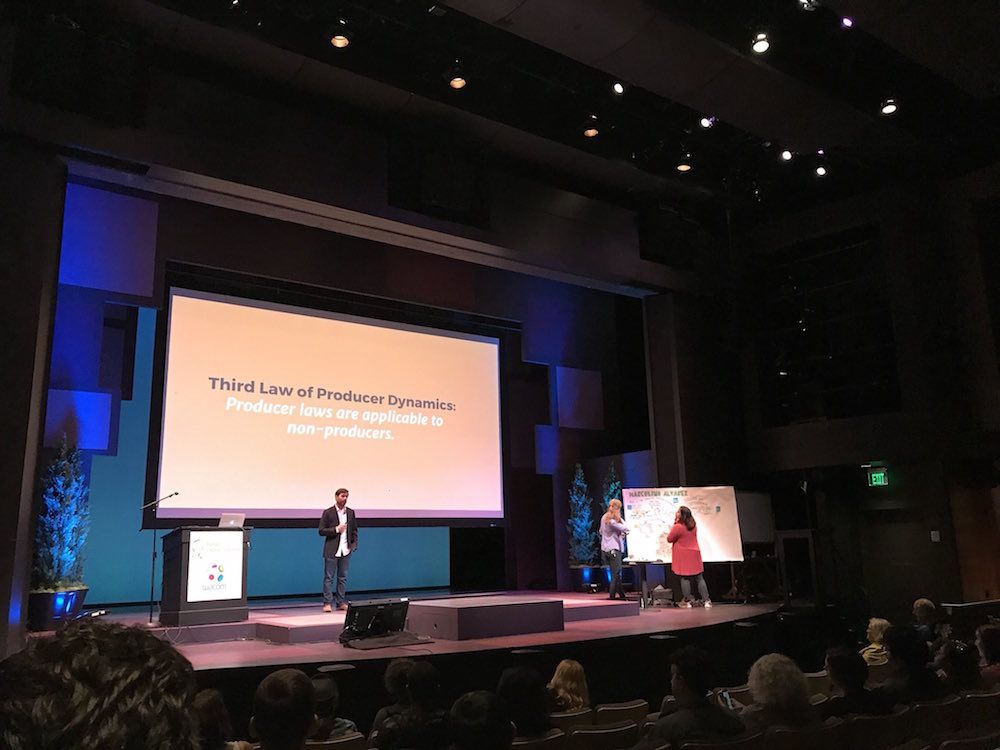
As creatives and producers, we have all found ways to get things done. Sometimes they are efficient, other times they are roundabout – but we would all be better to speak more openly about how it is we do what we do. Our industry doesn’t need to be obscured, and we may gain insight that we previously never would have tapped into without this conversation. Share your thoughts, tools, process and knowledge to help others.
Kim Adams – Virtual reality producer
Persistence is key to Kim Adams’ story of getting to be the busiest producer at Pixar and now one of the leading producers in the world of VR. She never let a denied meeting request or unreturned call stop her. By connecting with people and lending a hand, she was able to find her way through a complicated network of who-knows-who in order to reach her goal.
Takeaway #2: Trust your team.
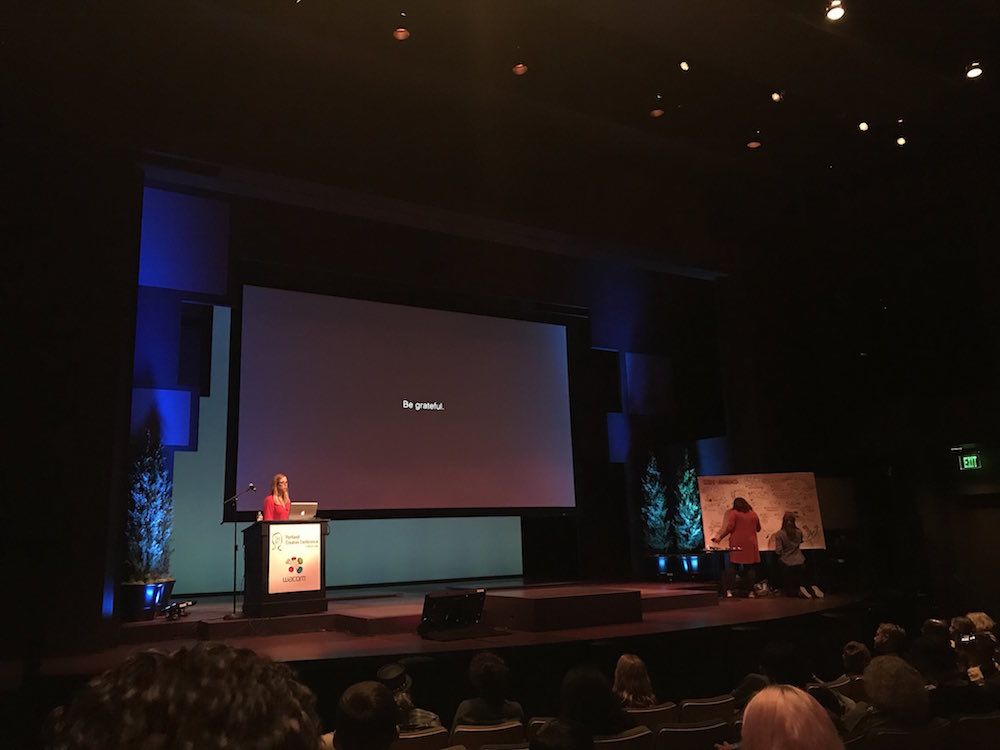
Adams was at one point the busiest producer at Pixar, which means that she needed to trust her team. She then found herself working in VR, something she knew nothing about. Again, she had to trust her team to execute. Time and time again she finds herself unsure of the environment she is working in, but always able to build a team she can depend on and work with to execute the impossible.
Peter Kuran – Academy Award-winner, visual effects
Peter Kuran’s first project in film was on Star Wars, where he was forced to solve complicated special effects problems with very little technology compared to today. It made him incredibly resourceful and able to create unique solutions for problems within the film industry.
Takeaway #3: It all comes down to problem solving.
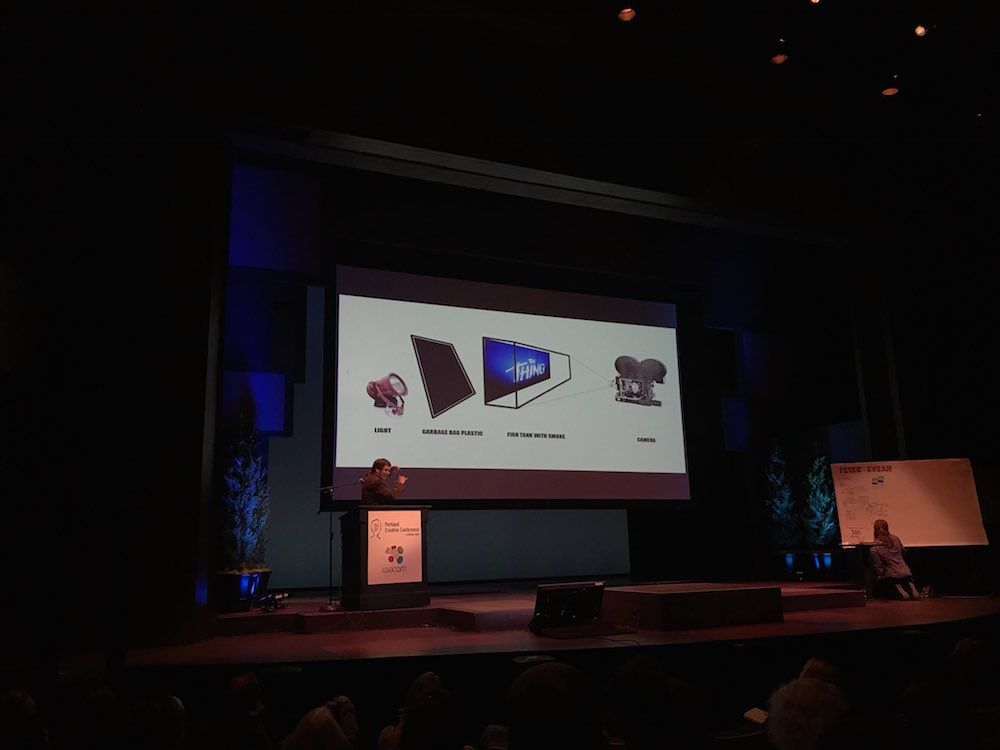
Kuran found himself caught in the middle of the switch from analog to digital. After years of developing skills, he found himself having to adapt to a whole new world of technology and expectations. But he recognized a universal: people will always have problems. By being able to identify and solve those problems, you will make yourself invaluable.
David Walker – Award-winning comic book writer
The first time David attended the Portland Creative Conference, he actually made a fake badge – he couldn’t afford the ticket. That’s the wonder of the people who presented at this event – they all had creative ways to solve the problems they encounter.
In his professional life, David has been a number of things – but his heart has always been in comics. It took him decades of trying, with many false starts and career changes, to break into the industry, but he persisted – and continues to push the conversation in comics.
Takeaway #4: Creatively is determined by the company you keep.
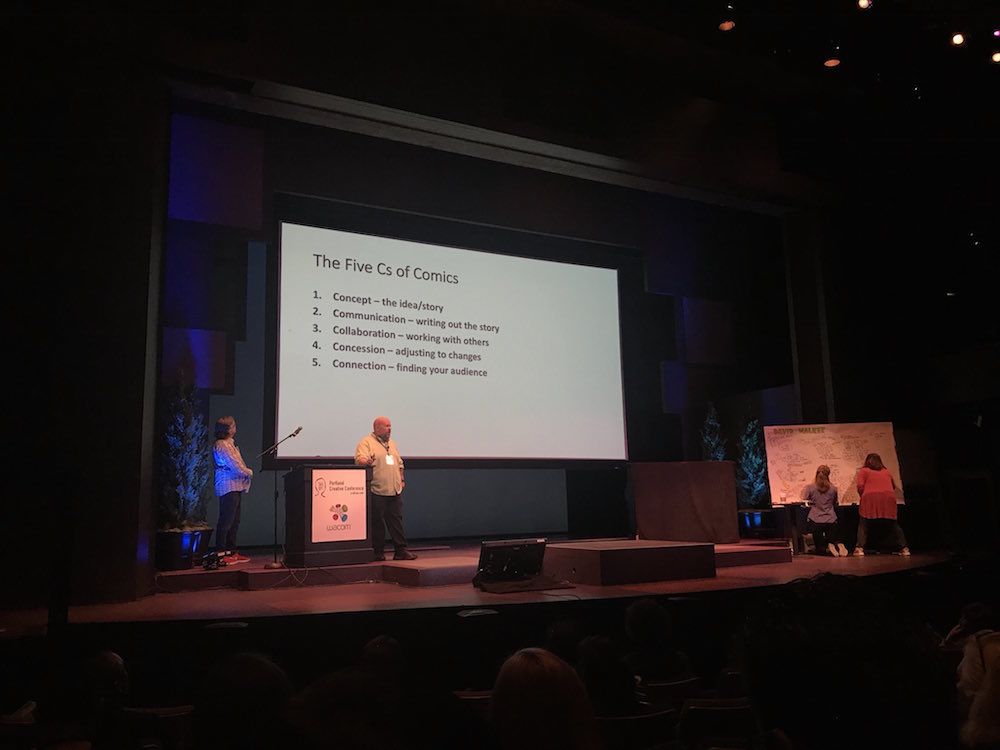
Walker recommends that you surround yourself with people who push you in the direction you’re looking for. It’s important to help people get better, but you need to always be working on yourself, too.
Wes Studi – Academy Award-winning actor
Wes Studi spoke about the process that he goes through as an actor to be successful, sharing scenes that highlighted the different ways he approached becoming a character. It was incredible to learn about the emotional toll that acting can take, especially if you need to oscillate between different scenes and character behaviors.
Takeaway #5: Believe in serendipity and response.
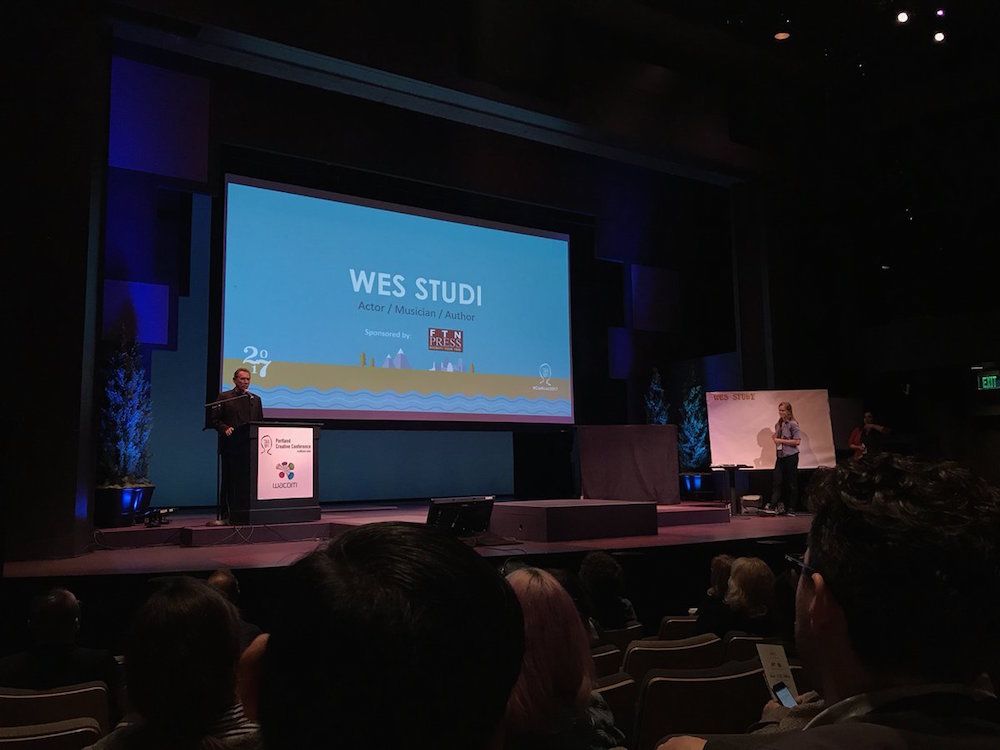
It is important to feel things naturally. Allow others and yourself to experience joy and pain so you can have a natural response.
Lidia Yuknavitch – Portland-based author
Yuknavitch spent years discovering her creative process, pushing back against those who demanded different from her. But through it all she has learned to discover and embrace the process that works for her, which may mean that sometimes ideas will sit for decades before she takes action on them.
Takeaway #6: Define your own story.
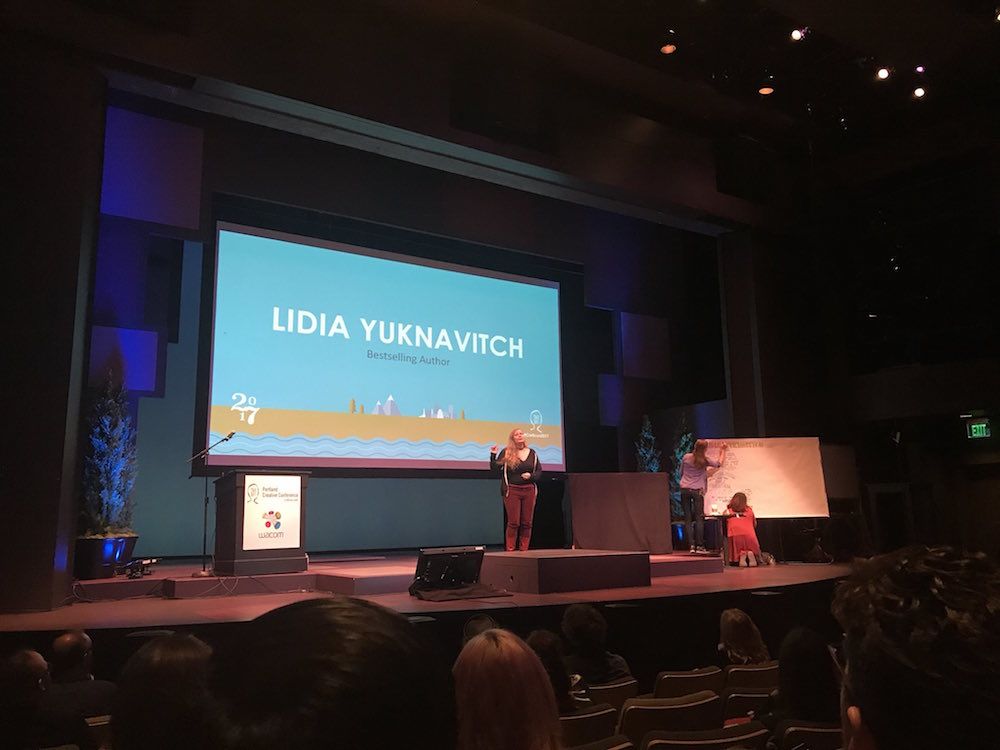
Too often we allow others to portray their perception onto us, without allowing us to be ourselves. We own our own story about who we are. As Lidia so movingly put it, “I am not the story you make of me.”
Angela Medlin – Apparel designer
Angela Medlin spoke with us about her coming up in the apparel industry. Though she worked her way to becoming one of the most influential designers in the industry, she did so while hiding her other passions – most notably, painting. When she had the courage to announce her love of activities outside of apparel, she quickly found a community within her peers – who all were able to be a truer version of themselves.
Takeaway #6: Nothing is arbitrary.
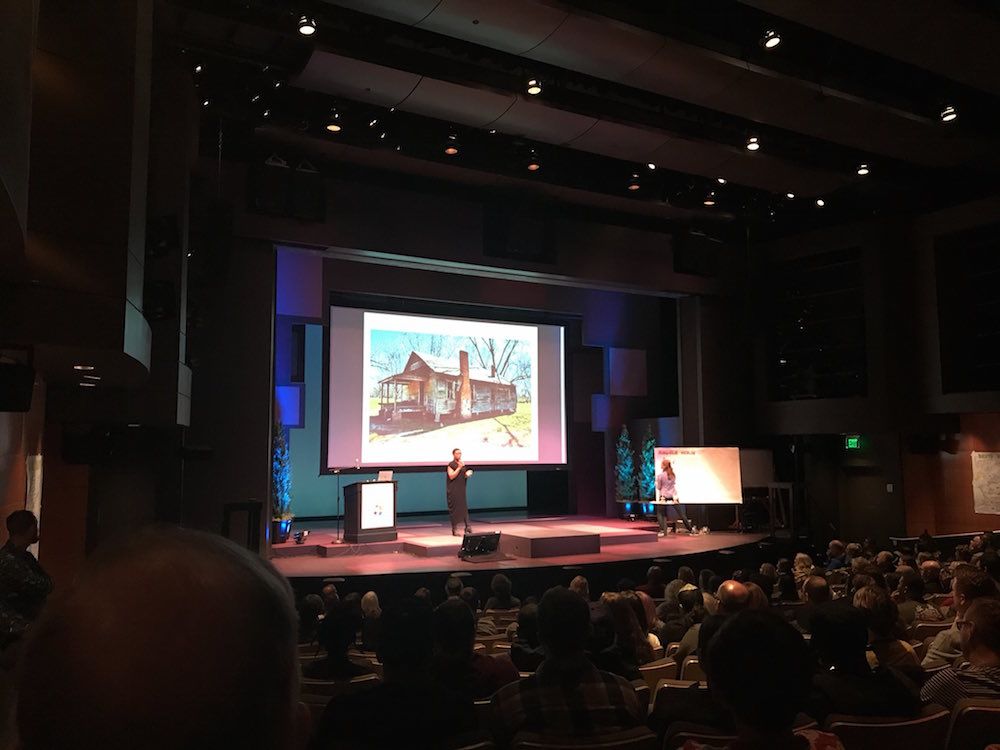
Medlin’s life has been one of hard work and dedication to her passion. It can be easy to brush off an idea or an interest, but it is important to understand that everything in our lives helps to form who we are, the decisions we make, and our approach through each day.
Shawn Levy – Bestselling author
Shawn Levy investigates the times, societies, and people that make magic happen. His investigative process enables him to get at the details that others would ignore and create a map of a community that is far more detailed than what most historians will consider.
Takeaway #8: The sum will achieve greater than the parts.
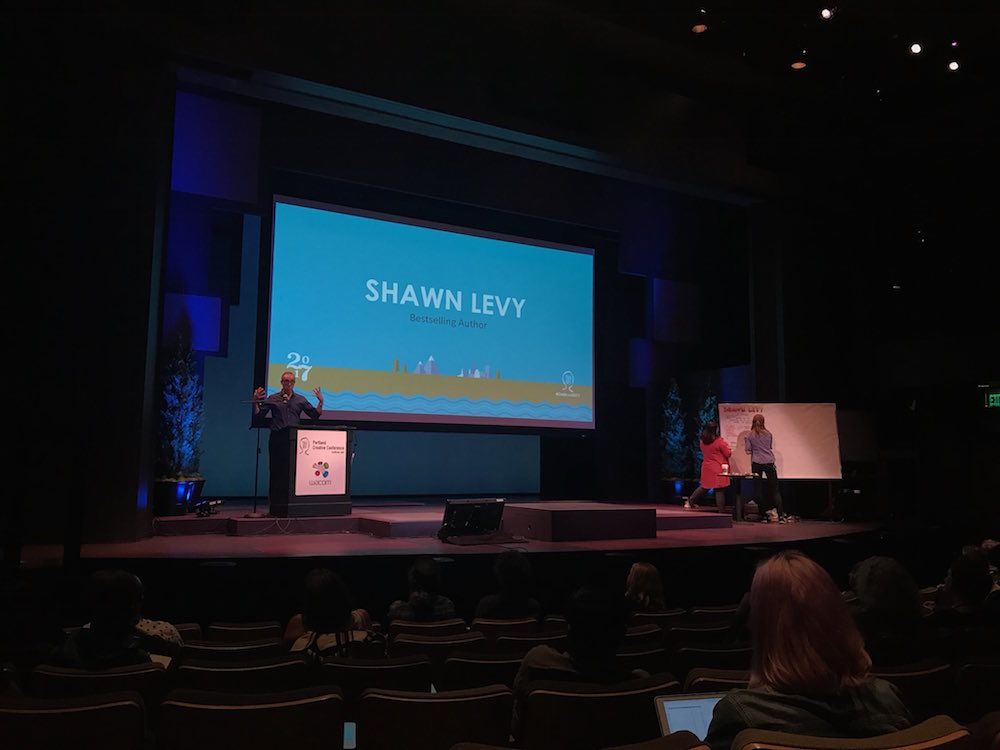
Portland is at a unique point in history. We don’t create much that can be easily exported, but we are a community that is building something special. So consider what you can do to encourage that, and enable Portland to be the absolute best that it can be.
All For A Good Cause
The conference itself is one of the least expensive you will find – coming in a little over $100, with most of the proceeds going directly to Keeping the Arts, a Oregon-based nonprofit that gives grants to fund arts education programs.
For me, the Portland Creative Conference was an opportunity to learn about how other people approach problems and opportunities in their careers and in their lives.
An Optimization Strategist’s Takeaway
As an Optimization Strategist, process is inspiring for me. It is easy to fall into the normal track of uncovering opportunities, but hearing stories of other processes makes me consider what a solution may look like if the path winds a bit differently – and that is an exciting possibility, indeed.
Written by Duncan Lawrence.


